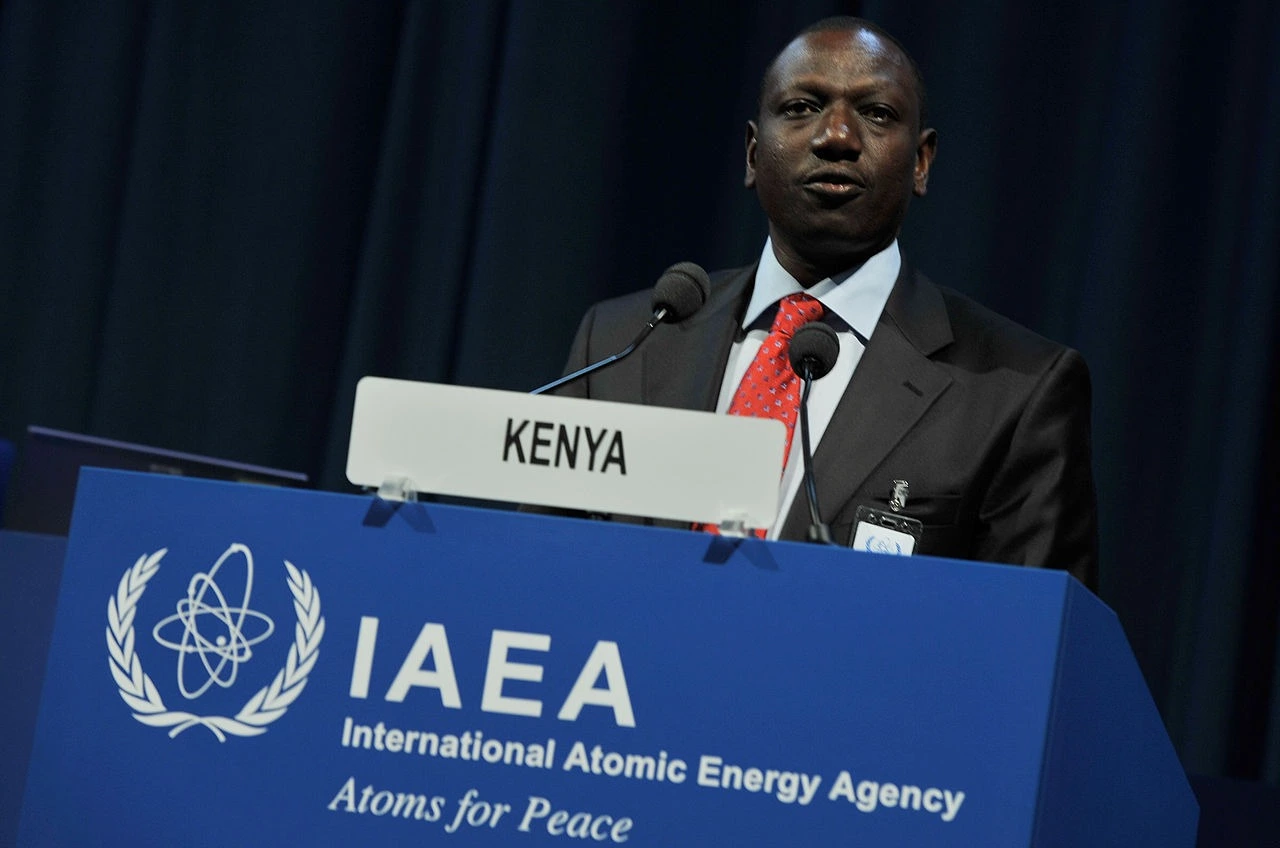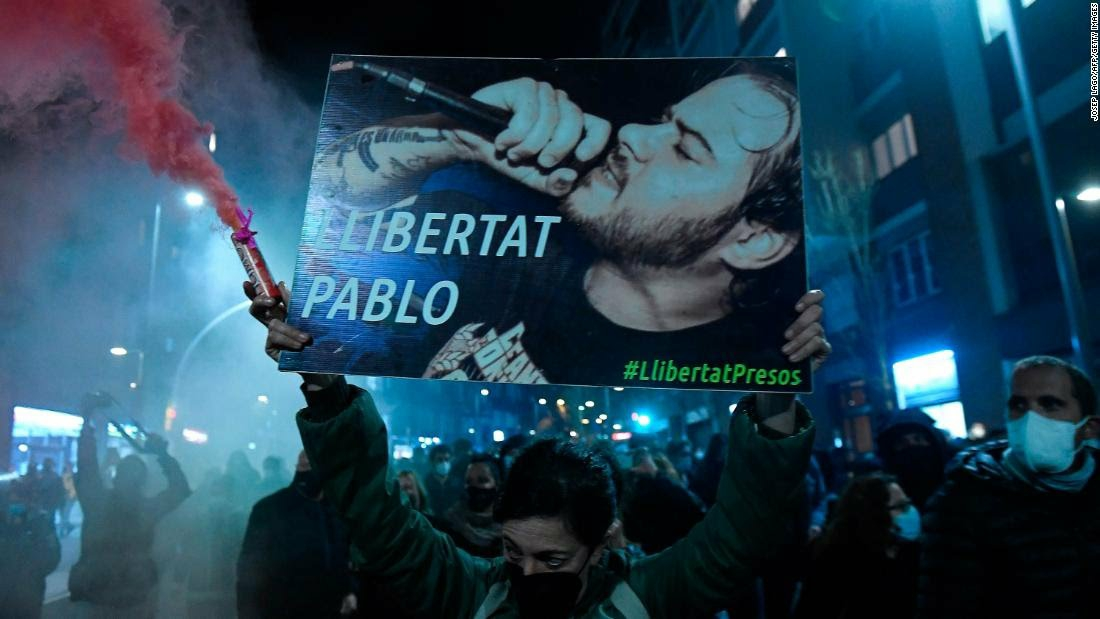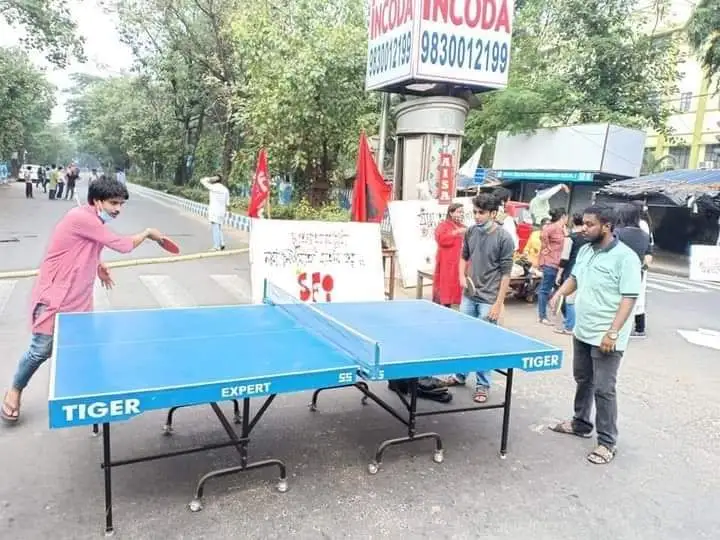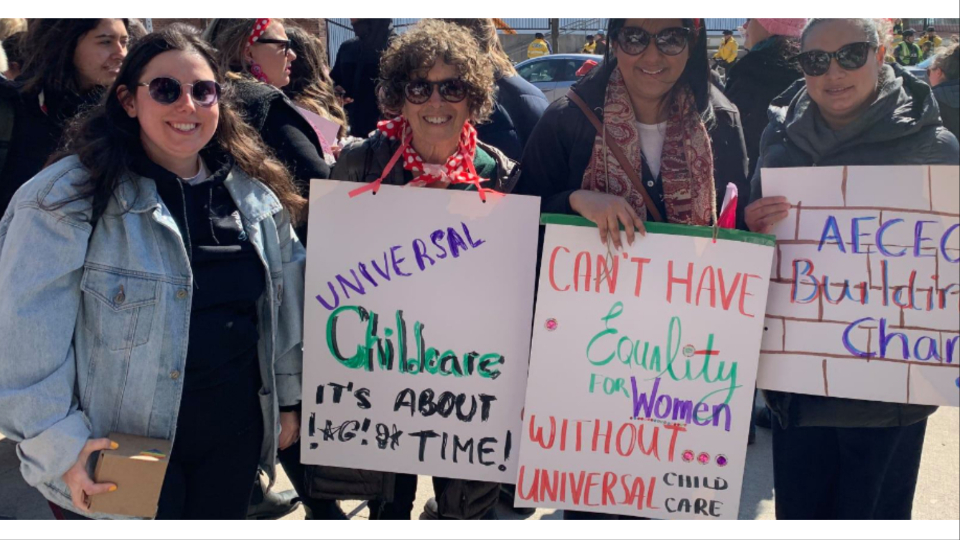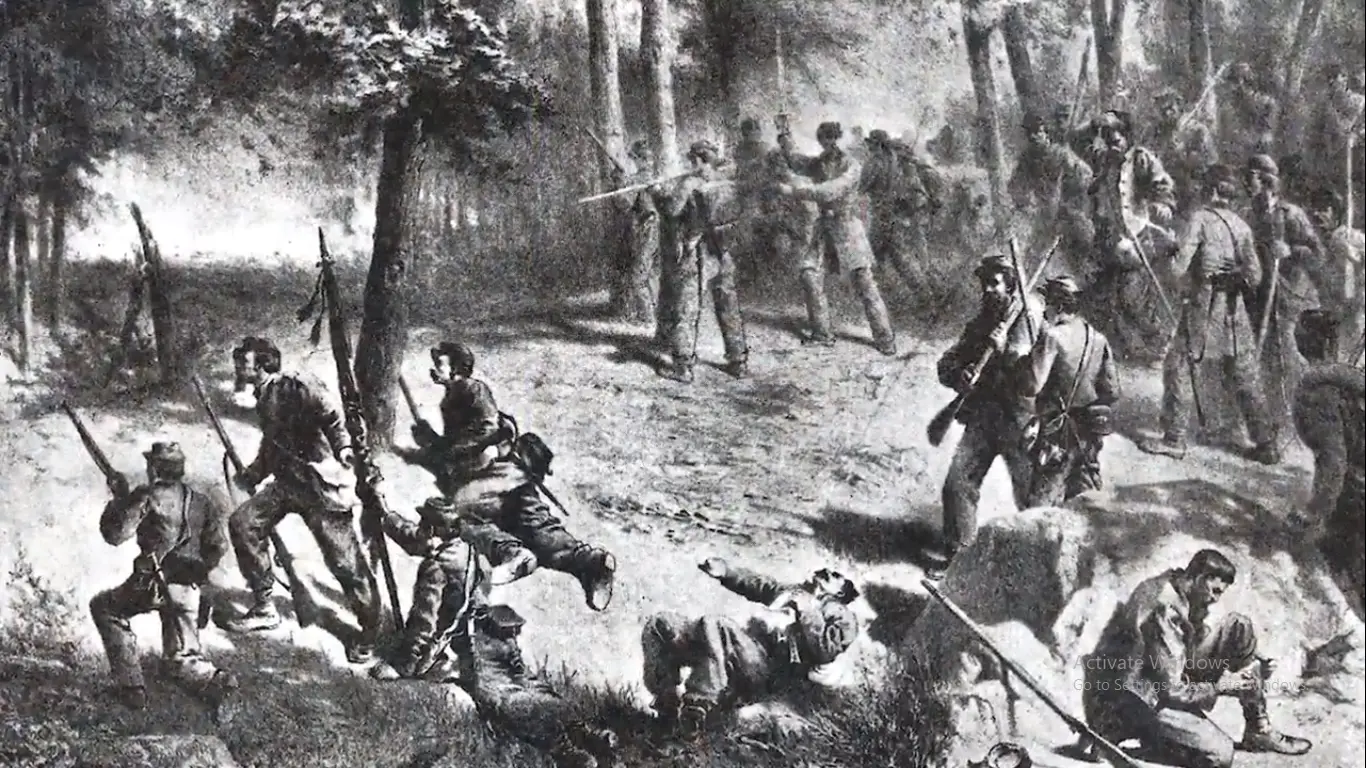Introduction
When William Ruto became the 5th President of Kenya, he dragged with him huge personal and political baggage that caused the already enfeebled socio-economic and cultural foundations of the Kenyan society to further erode — even before he passed his first policy or presidential decree.
In this 4-part series, we shall explore his political weaknesses in the first 3 parts before analysing how these can be managed in the final part. Our goal is to try to understand why William Ruto has been unable to perform as he has promised and why his ‘hustler’ narrative has ended with a rusty cough. As with any complex analysis, the series is non-linear and some issues will cut across the four parts.
In this first part, we shall explore Ruto’s pre-existing condition of corruption. What does it mean for Kenya to have such a leader at the helm?
And if fish rots from the head, does it mean Kenya is rotten or can something be done to stem the spread?
I will not go into specifics. This is a preliminary analysis rather than a detailed study of every action and scandal. It should make smooth reading even for those who are uninitiated into Kenyan politics.
In the second part of the series, I will take you through the hustler narrative: the youth who bought into Ruto’s prosperity gospel and expected him to swoop in and save them from the economic and social hopelessness that had been created when Ruto was Deputy President.
The fire that Ruto lit within the youth has now dwindled into a smoky mirage with only 24% of Kenyans still having hope that things will improve.
What does this mean?
Why the quick death of hope and what happens when hope dies?
In the third and final diagnosis, we shall explore the much touted ‘Dr William Ruto work ethic’. He is a busy man. He has always been a busy man… up and about, hopping from place to place trying to fix a deal!
We are reminded of the former dictator, President Moi, who micro-managed everything. He was all over: here on Monday, there on Tuesday, guesting and hosting, bright and shiny, attending Sunday service before repeating the same process all over again.
So concerned with image and being seen so that everyone could not forget him — or cross him!
Ruto is contagious: he will come to you even if you do not go to him, and whatever is ailing him will be suffered by all Kenyan. The hearts of his closest supporters are now breaking as he has proven impotent, incompetent or just unwilling to offer some form of relief. Other Kenyans who do not toe the line will be visited in private and painful ways until they address him as ‘Uncle’.
William Ruto’s Predisposition to Corruption
William Ruto did not just become the President from out of the blue: prior to his election on 13th September 2022 he was Deputy President under Uhuru Kenyatta, Kenya’s 4th President. In that period, every aspect of Kenya’s social and economic welfare declined. Ruto was one half of the ‘Uhuruto’ government. Under that government, unemployment passed the 40% mark and the inequality gap tripled in less than a decade.
By August 2022, most wages had gone down vis-a-vis the cost of living as more Kenyans join what economists and development experts call the ‘working-poor’ category: the undesirable situation where despite working full time, your income is not enough to meet the cost of your basic needs.
This reversal of Kenya’s fortunes and total departure from the country’s development plan occurred because the Uhuruto government was woefully unqualified and was unable to meet the challenge of managing the country.
To compensate for their inherent shortcomings, Uhuru Kenyatta and William Ruto indulged in the delivery of ‘quick’ wins, PR stunts to deflect public interest from scandal. For example, their priority, upon forming the government in 2013 was to fight their criminal cases coming from the ICC in which they had been accused of being the chief architects of the country’s 2007/2008 post-election violence. This resulted in governing via PR-stunts during the first two years.
By wining and dining the media and promising laptops to all Kenyan schools, they shut any potential for investigative reporting and kept things in suspense — will there be laptops or won’t there be laptops?
As their political theatrics took centre-stage, all the country’s development projects were abandoned except for the projects that could net them money. For example, the development of a standard gauge rail system which would benefit Kenya and link with surrounding countries led to a very opaque and lucrative tender process — while the cheap laptops were never delivered. Kenya regressed back to the Moi days when it was all talk, and lots of catchy promises, with no action or plan to back it up.
When the Kenyan people complained about declining incomes, Uhuruto intensified their theatrics by providing endless entertainment while persecuting their political opponents. They also offered one or two sacrificial lambs to be tried for corruption and the media sunk its teeth into that for months which turned into years. As time went on, the country’s development plans were shelved and the path towards becoming a lower middle-income economy was abandoned. By default, the new path was an overpriced footpath laid with mass unemployment, crime and national debt that ended in the country becoming bankrupt!
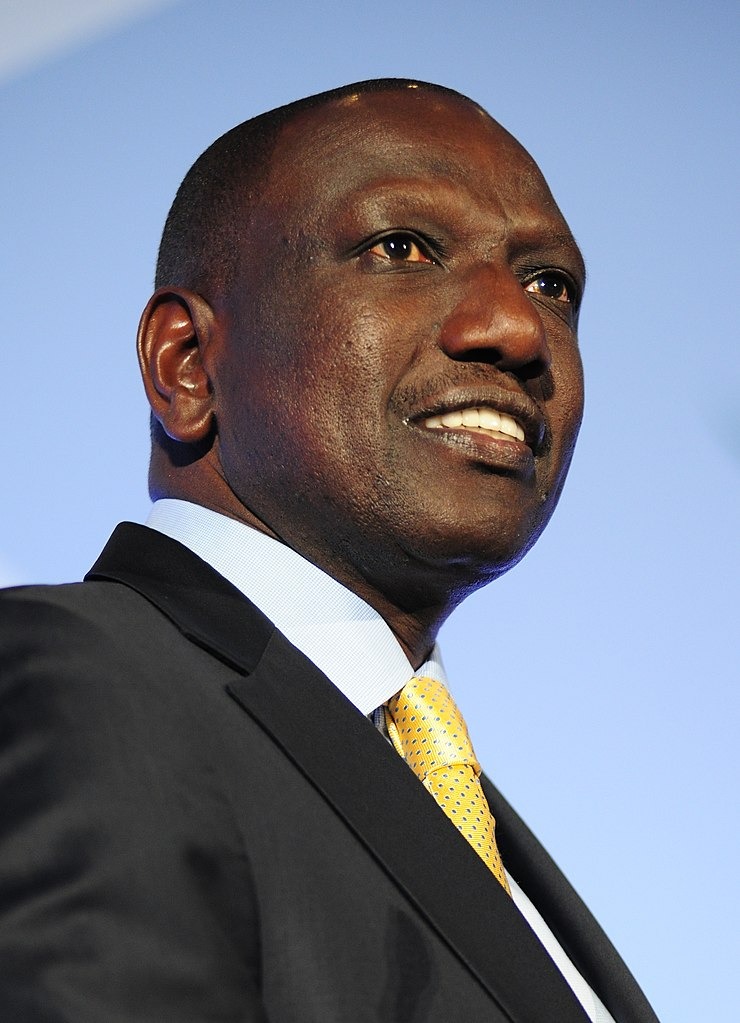
Once the country arrived at this untenable position, Ruto, ever the professional politician needed to remove himself because Deputy President was not going to be his final destination. Although 50% responsible for the mess, he was able to heap all the blame on Uhuru Kenyatta’s incompetence.
Ruto heralded himself as a new beginning, or rather as THE new beginning. He preached to one and all that, because he had seen dynastic politics at first hand, he knew their tricks and was so disgusted that he had decided to join the masses. It was a Ruto miracle. It was a rebirth.
A lot of people agreed with him, particularly the youth. They wanted to feel good and were curious to know what it was that he had seen that had caused him to leave the lofty Kenyatta for the masses. They found his story compelling and begun to listen. Ruto managed to fashion himself as a man of hope.
Hope was reinforced by Ruto’s pseudo-religious persona and his Oscar-winning ability to tell rags to riches stories effectively contradictory to Uhuru Kenyatta’s Prince to President narrative. Ruto inspired young people to think that moving from a life as hopeless chicken farmers, motorcycle riders or farm hands to becoming billionaires, or at least millionaires, was going to happen to them — like it had happened to him — because they are all blessed and God was going to see to it.
And when things went wrong in the days of Uhuruto with their half-baked policies and PR stunts, the youth found comfort in Ruto. Going from church to church and contributing millions of Kenyan shillings to buildings and food for the hungry. He had ready cash and in the face of growing unemployment, declining public services and a rising cost of living, the most profitable business one could do in Kenya was to start a church and invite William Ruto!
By the time the political campaigns kicked in, William Ruto was miles ahead in the hearts of the people. Running after a global pandemic and in the middle of economic crisis, there was nothing more attractive than a politician who seemed to have money to burn.
So when he was able to provide churches with new seats or fresh choir equipment, it was easy to see he was a man of action. Therefore, he was able to promise that one day — if elected by the Grace of God — he would become the President who would take from the rich ‘Dynasty’ and give to the poor ‘the Hustlers’ as he called his supporters. And they believed him.
Ruto was offering economic revenge to those who were feeling betrayed by their government and the ruling class. And because Ruto had managed to peel himself from Kenyatta, which strengthened his fearsome reputation, they believed he would change things.
At the time, his policies appeared just — something even some socialists bought into — but ended up being wrong and impractical.
If he was going to strip the rich, would he strip himself of the billion-shilling mansion? Would the churches give back those donations?
Nobody, most of all his supporters was thinking that far ahead. They were hungry and angry, and grasped at any hope, wishing to survive. Ruto knew this.
Because there was no viable opposition — with Raila Odinga having been given the kiss of political death by shaking hands with Uhuru and joining Kenyatta in his growing war against Ruto — there was nobody to left to counter Ruto’s narrative. Every Sunday, the legend of Ruto grew and it was told and retold in the news and in the pews until everyone came to believe it.
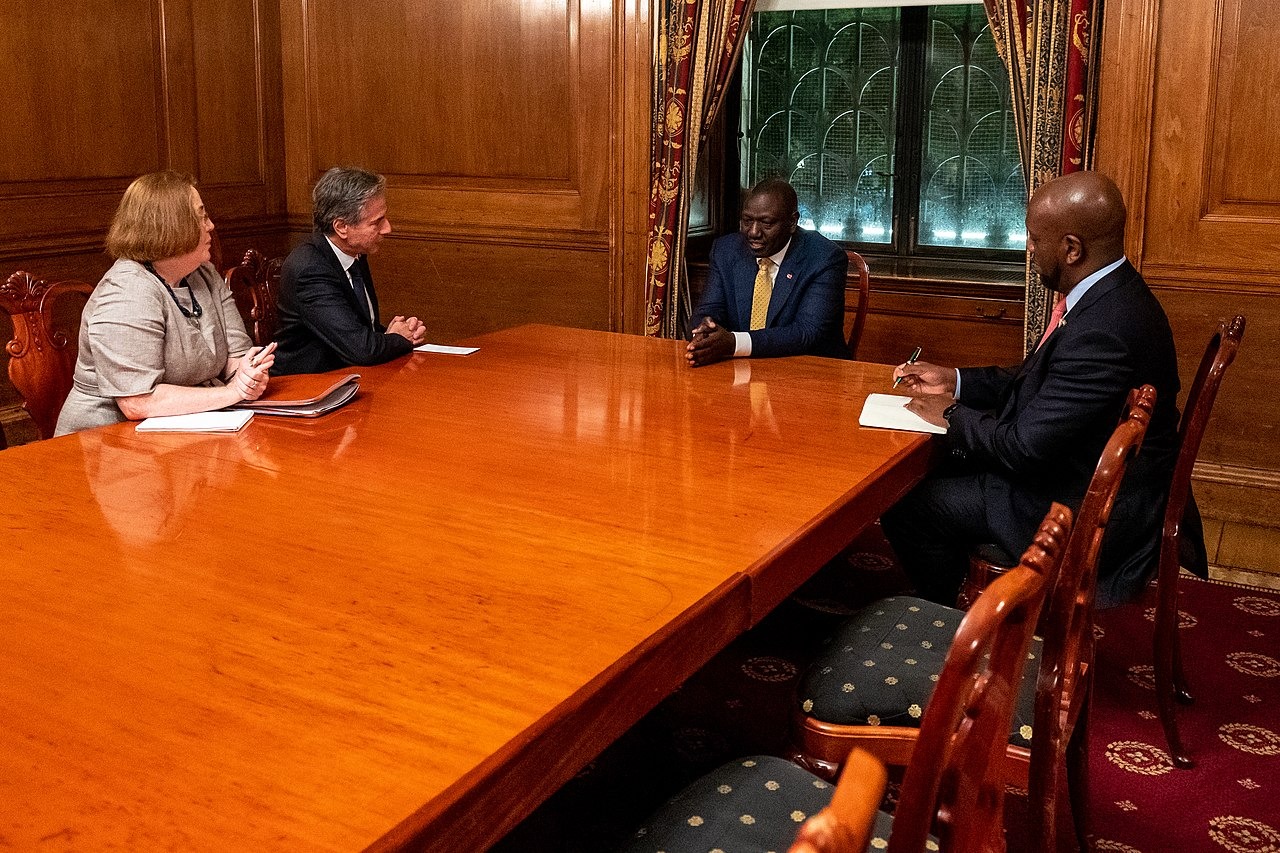

Such a compelling story seemed real. They forgot that as Deputy President, Ruto had taken their hopes and dreams and driven the country to a point of bankruptcy.
William Ruto’s story is not that of the chicken farmer who became a billionaire by God’s Grace. His real story is less biblical and more mafia in origin. As Deputy President, Ruto shared power in a literal sense, with Kenyatta. They split the country between them 50:50 so that they could exploit their portions to their hearts’ content and leave each to his devices. And because of this government sharing, because of this split, it meant that Ruto essentially had half the country under his thumb. He was the boss as much as Kenyatta.
Dr William Ruto was not just complicit in the country’s failure, but the true architect of Kenya’s fall.
William Ruto was always a hustler through and through: from the very beginning, he was working to become the President after Uhuru’s term was over. And it was known that to be President, one needed money.
Having seen Uhuru’s rise to power and having seen the elite dynasty at work. It came to pass that after getting his half of the government, William Ruto assembled a loyal army of corruptible operatives in the state agencies to mine for him.
These officials reported to him, and with the ease and authority of their principal, they siphoned off whatever funds and resources they could for their dear leader. The national cash grabbers were so successful in their private role as state-sanctioned thieves that by the second Uhuruto term, others joined in. By then, it had become clear that Ruto’s guys had made it thanks to the extra padding they enjoyed with each deal, and the majority working in government fell in line, after all, Kenyatta would be leaving and Ruto was the future. This turned the majority of the government and state officials into a favour-trading cabal whose mission was to siphon money for themselves. With no oversight and nobody to ask questions, they became rich and with that, came the power to ensure their positions were protected.
Ruto became the lynchpin upon which Kenya’s third wave of structured, institutionalised corruption set in. Ruto became a symbol of corruption Kenyans observed the speed at which things happened. Syet uccessive government officials saw others enriching themselves under the protective wings of the Deputy President who traversed the country contributing millions of shillings to churches which prayed for his continued success. Ruto’s salary as Deputy President was 1 million shillings a month. His recorded monthly donations to churches would be as much as 20 million shillings a month.
This factory-scale corruption was so bad that the government went broke: yet the nation’s economy had tripled in size. The private sector became complicit: everyone wanted to eat, as Kenyans put it and in making a meal out of stealing from Kenyans. Uhuru Kenyatta put it best:
“Corruption has become an accepted way of life. As individuals and as a collective, we have sacrificed our traditions, customs and values at the altar of materialism. Rather than shunning those who have made their wealth through illicit means, we celebrate them, even in places of worship.”
Under Uhuruto, the government went bankrupt, ordinary Kenyans suffered, plans were abandoned and inequality rose higher than any time since Independence due to the theft and cronyism of the kleptocracy.
Upon William Ruto assuming the presidency the suspicions that he was already infected by the corrupt culture were confirmed. As President, with all his power and knowing all the history and the corrupt cultural norms that had developed under the dynastic Kenyattas, William Ruto demonstrated that corruption was not only a symptom of his presidency, but the underlying cause of his success and his future agenda.
During the 2022 General Election, Kenyans cried out that their biggest problem and the greatest challenge that the country was facing was corruption. In other words, by the end of the Uhuruto government, everyone saw the Emperor was naked and there was no hiding behind others. No matter the political leanings, no matter who they supported, Kenyans knew the problem was with the state: that government officials and civil servants were all sleeping on the job after eating everything they could.
Unfortunately, William Ruto is a career politician and political theatre is the extent of his experience. To him, taking the mike and stating how he was going to fulfil the hustler dream was his poetic statement. Declarations about who was going to be on the losing end of government contracts — and the new guy who was to to benefit — have proven more his style, Ruto has not been able to present any single coherent or practical plan to address the number one issue in Kenya.
Since he took over, not a single thing has been done to purge those corrupt elements from their high offices — and this should be surprising to anyone, considering these were his people. Furthermore, the same state officials who were mismanaging and siphoning funds during his tenure as Deputy President are too valuable to be thrown away now that he is President.
One former public official who used to work at the Ministry of Water during the Kibaki administration told the following story: [Mwai Kibaki, President of Kemya 2002-2013]
The senior official was invited for a briefing with the new Minister who wanted to get first-hand information on how things work. During the meeting, he happened to mention that it was possible for all Kenyans in Nairobi and Mombasa to get running water everyday all day if the corrupt elements were removed from office. The Minister leaned forward, curious of this so-simple solution, and the gentleman leaned in, eager to share his wisdom and experience.
He spoke of the cartels whose work is to broker water rationing in order to ensure the ‘water tank’ suppliers who had spent billions sinking boreholes in Nairobi could earn from their tenants and other water selling schemes. He spoke of the corruption to funnel money to large estates and commercial farms. He explained how the whole scheme works and he was very proud of himself for his courage and integrity. He even gave the names of those he was sure were in on the scheme and the ones he suspected might be in on the scheme.
Three days later, the Minister called him to the office. He was excited.
He told us it was not a long meeting. It was a barely ‘hello there’ meeting, where he was thanked for his service and then given his termination letter with a very good severance pay. He was escorted out and his personal effects were delivered to his house just as he was being dropped off with the government vehicle for the last time.
The Minister, armed with a list of experienced corrupt officials went to work and to this day, no Nairobian has enjoyed seven days of tap water!
William Ruto will not have to go to such lengths. He will not need to fire anyone who may be thinking about changing things in order to give service delivery to the Kenyan people as there are very few left who are not corrupt. Government services have all become disfunctional.
Every minute that passes with Ruto as President is an affirmation of the normalisation of corruption. At the top of the hill sits the man, the hustler, who hustled his way to the highest seat of the land.
It is no longer individuals operating behind the scenes: it is a structural process driven by ‘honestly’ corrupt individuals working in sync to enrich themselves and the benefactors who have recognised their unique talent and have put them in office to ensure that their needs are met.
Without a viable opposition to fight the established kleptocracy, Kenya now has a full-blown crisis.
Kenyans should, therefore, expect things to get bad very quickly, and to deteriorate further in the second year of Ruto’s presidency.
Hope is not a tangible product. It not money you can bank and it cannot be forced into the mind. Since Ruto became President, he has squandered moment after moment and failed to make any sign that things will be different. He has made statements — but statements are not plans and they are not action.
Ruto’s ‘Hustler Fund’, as he calls it, is the opposite of the hustler economics that he had tried to sell. While he never came out and said what the economics would look like, there were words about re- organising the economy so that power would go to the people. Unfortunately, many bought into it and he won.
Rather than rewarding them by transferring ownership of the means of production to the Kenyan youth and other citizens, or taking back some elements in order to provide better services for the people, Ruto gaslighted his supporters by establishing the Hustler Fund, the trickle-down fund, which is by far the most damaging neo-liberal programme ever introduced. The whole world now knows trickle-down economics never works.
The death of hope, has killed that intrinsic patriotic, willingness to suffer through hard times in order to build a better nation and a better world.
Hope allowed Mwai Kibaki to succeed in his early days as President. When he took over, he inherited a broken system: Kenya was essentially a failed state and the people were suffering. Fortunately, Mwai Kibaki was a planner, he was strategic and surrounded himself with some great minds to steer the country out of its mess. But he also needed the people to co-operate.
In the most astounding, awe-inspiring moment for Kenya since Independence, the people came together and walked to work. Supporting the new rules and regulations Kibaki was putting in place to bring order, people took their children to school — old men went back to class — and the future was bright for Kenyans because of hope.
Ruto’s inaction, lack of planning and corrupt practices has now killed hope for most Kenyans. Few believe he can bring any change or improve things for them. Most Kenyans have accepted that they are on their own: abandoned by the people they elected to serve them and at the mercy of corrupt police, government officials and all the terror that comes with this reality.
Besides the death of hope among Kenyans, Ruto’s corrupt administration invites other problems. When corruption is extreme, even capitalism is unable to function properly.
Business becomes very expensive for genuine investors. It is not worth foreign companies coming to Kenya because officials from the national government to the county governments, will be at the door hustling for ‘protection fees’ — or else!
To them, the government officials, the investment and the eventual jobs, increased productivity and income do not matter if they are not eating. These gatekeepers, officials and supposed servants of the Kenyan people will sabotage investors and cause harm because someone is not giving them the bribes they need to issue a work permit.
It is no wonder hope is dead and less than a quarter of all Kenyans now think things will get better. Sad.
If you are a socialist, We need you now!✕
We are proudly biased towards Anti Capitalist, Anti Imperialist, Anti fascist! We believe we don’t need to mention you the importance of marxist magazine in this era! We are depending on our comrades only! Make an investment of $2.5/m in making a quality journal inclined to Marxism Leninism! Your one potential subscription helps us to maintain our global team! Subscribe and get access of all exclusive content available at the magazine section!
